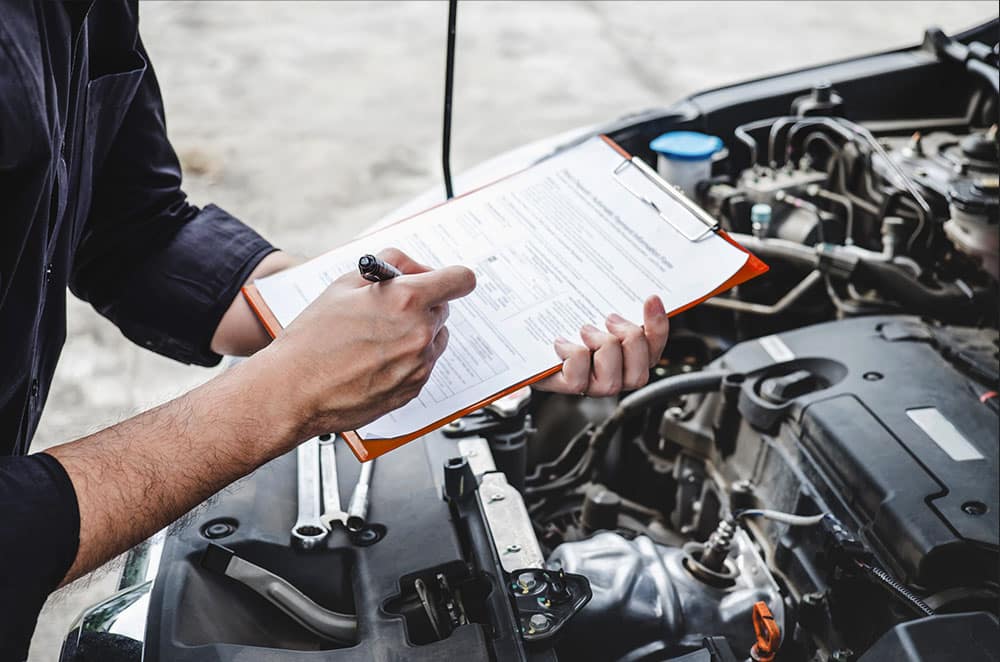Introduction
How To Keep a High Mileage Car Running Smoothly? High mileage cars can be tricky to keep in running condition, but these essential tips and tricks can help you get the most out of your vehicle.
As a car ages, its components begin to wear down, leading to poor performance and reduced efficiency. Knowing how to properly maintain your car is essential if you’re looking to get the most out of it. Regular maintenance is key – regular oil changes, checking tire pressure and spark plugs, and keeping an eye on your cooling system are all essential parts of keeping a high mileage car running smoothly.
There are also a few basic tips and tricks that can help improve your car’s performance, such as using the right type and grade of oil for your vehicle and making sure you keep up with regular check-ups. You should also consider investing in specialized accessories or upgrades to ensure that your vehicle runs optimally, such as brake pads or air filters.
By following these tips and tricks, you can get the most out of your high mileage car and make sure it keeps running smoothly for years to come.
Defining a High Mileage Car
What is a high mileage car? Most people consider a car to be “high mileage” when it has over 150,000 miles, but that’s not always the case. As cars become more reliable, the definition of “high mileage” is extending to more cars that are pushing 200,000 miles and beyond.
It’s worth noting that even with today’s improved technology and manufacturing on cars, there are still certain parts of the car that will wear out faster if it’s been driven more than 150,000 miles. This includes brakes and tires and other moving parts such as alternators, water pumps and fuel pumps.
High-mileage vehicles require more frequent preventative maintenance to keep them running smoothly and efficiently. Proper maintenance can extend the life of the vehicle significantly. Scheduling regular oil changes, tire rotations, brake inspections and using high quality motor oil can help keep a high mileage car running longer.
Recommended Maintenance Schedule for High Mileage Cars
If you’ve decided to hang on to your high mileage car, it’s important to properly maintain it in order to keep it running smoothly. The basic rule of thumb is that most cars should receive regular oil changes at least every 3,000 miles or every three months, whichever comes first. However, if you drive a high mileage car, you might need to go more often. If you own a car with over 100K miles, it’s ideal to get an oil change every 3-5K miles.
In addition to changing the oil on a regular basis, high mileage cars need additional maintenance in order to prevent mechanical issues and prolong its life. Some of these recommended actions include:
- Scheduling regular tune-ups: Because the engine has been used for many miles and may have begun showing signs of wear and tear, getting regular tune ups is essential for reducing the risk for breakdowns or other major repairs.
- Timing Belt Replacements: High mileage cars may require frequent timing belt replacements due to normal wear and tear from age and usage. A timing belt should be replaced according to the manufacturer’s recommendation or once it reaches 100K+ miles.
- Inspection of Wiring & Electrical Components: Regular inspection of wiring and electrical components ensures connections are secure and prevents premature failure or shorts due to corrosion or rust that can occur over time.
By following a proper maintenance schedule for your high mileage car, you can keep it running safely and efficiently for many more miles in the future.
Steps to Keep High Mileage Cars Running Smoothly
No one enjoys dealing with car repairs, but taking steps to keep your car running is vital, especially when you own a high mileage vehicle. Fortunately, there are some ways to reduce the chances of needing costly repairs and make sure your car remains reliable for years to come. Here are the top steps you need to take:
Regular Maintenance
One of the most important steps for keeping a high mileage car running is routine maintenance. This includes fluids such as oil and coolant, as well as inspecting and changing any filters or spark plugs when necessary. It’s also a good idea to have a qualified mechanic check your brakes, battery, and exhaust system for any signs of wear or damage.
Monitor Tire Pressure
By keeping an eye on your tires’ air pressure, you can help ensure that they last as long as possible and remain reliable as you drive. Make sure to check each tire regularly and adjust the air pressure as needed. Additionally, inspect your tires for signs of wear or damage that could indicate a need for replacement.
Replace Old Parts
It’s inevitable that parts will wear out over time due to regular use. When this happens, it’s important to replace them right away to avoid any potential issues down the road. Make sure you always use high-quality parts that are designed specifically for your make and model of car.
Common Problems to Look Out for in a High Mileage Car
Owning a high mileage vehicle can be daunting, but the proper maintenance and attention can help you keep it running smoothly. Here are some of the most common issues to be aware of when it comes to older cars:
Leaky Gaskets and Seals
Older cars can suffer from leaky gaskets and seals due to years of wear and tear, leading to significant oil and coolant loss. Staying on top of oil changes will help you identify any leaks sooner rather than later.
Worn Engine Components
High mileage engines are often prone to engine component faults, such as damaged bearings, worn valve seats, and damaged piston rings. If you notice any strange noises coming from your engine, or a decrease in power or fuel efficiency, take a trip to the mechanic for an inspection.
Corroded Electrical Connectors
Corrosion buildup can lead to faulty electrical connections that may result in a malfunctioning starter or fuel injector system. Have your car inspected for corroded connections if you experience any electrical issues.
Benefits of Regularly Changing Oil in a High Mileage Car
Regular oil changes are essential in keeping your high mileage car running well. The oil acts as a lubricant for all of the engine’s components, and over time it can become contaminated or develop sludge that can cause damage to the engine.
By regularly changing the oil, you can extend the life of your vehicle’s engine and maximize its performance. Here are some benefits of regularly changing your oil:
- It helps to keep the engine cool by reducing friction between moving parts.
- It ensures that all of the parts are adequately lubricated, which reduces wear and tear on the components.
- It helps to reduce emissions from the engine by keeping it running much more efficiently.
- It reduces engine noise by creating a smoother operation that produces less vibration.
- By replacing contaminated or old oil, you’ll reduce your risk of encountering costly repairs or worse, having to replace your vehicle altogether due to damage from dirty oil or sludge buildup.
By investing in regular oil changes for your high mileage car, you can ensure that it runs as smoothly as possible for many years to come.
Cost-Effective Upgrades to Consider for High Mileage Cars
Most people are aware of the importance of regular maintenance and servicing for any car, but high mileage cars need special attention. There are a few cost-effective upgrades that can make all the difference in keeping your car running smoothly over the long haul.
Brakes and Tires
Making sure to regularly check your brakes and tires is essential for any car, but especially those with higher mileage. Paying extra attention to these components ensures that any leaks or other potential issues are addressed in a timely manner before they become major problems.
Engine Oil
Regularly changing engine oil can keep your engine purring like a kitten no matter what the mileage is. Switching to more advanced oils such as synthetic oils can improve engine life and make sure it’s running as efficiently as possible no matter what kind of wear and tear it’s been through over the years.
Fuel System Cleaner
Adding a fuel system cleaner to your gas tank every few months can help clear out any deposits left behind by dirt or grime build-up. This helps to ensure that your system is running at maximum efficiency, leaving you with more power and better fuel economy in the long run.
By following these simple tips, you can keep your high mileage car running like new for years to come.
Conclusion
High mileage cars may require extra attention and maintenance in order to keep them running well and lasting longer. Doing small tasks, such as checking your car’s fluids, replacing the air filter, and having regular tune-ups, can go a long way in increasing the life of your car. As an added bonus, it can also help maintain fuel efficiency and reduce the risk of costly repairs down the line. If you take the time to give your car the care it needs, you’ll be rewarded with a high mileage car that runs reliably for a long time to come.


